Bae mi lernem Bislama*
* I will learn Bislama
Feb 3rd, 2020 – Luganville
So today, the kids in Vanuatu went back to school after a long summer holiday. It was good timing, as I too went back to school – my Bislama lessons started today.
Before I enthuse about the language, allow me to appreciate what a privilege it is to be in a position to learn it – lessons are laid on by the VSA, which is a smart move on their part. And what a setting I’m being taught in! There’s a plush resort across the road from us, and the plan was to meet in their beachfront café. Nobody has actually asked the resort if it would be ok for us to monopolise a table for the week, so I better thank them by plugging their name in this blog – they’re called the Beachfront, and so far they are the nicest resort I’ve seen on Santo. Words can’t do the beauty of this place justice, so fortunately I had my phone with me to snap some photos:
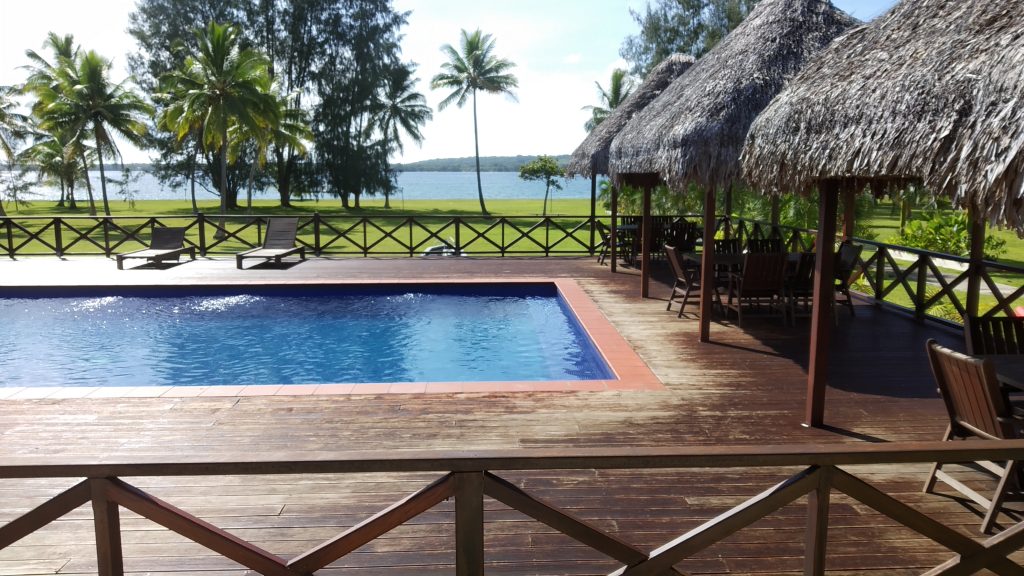
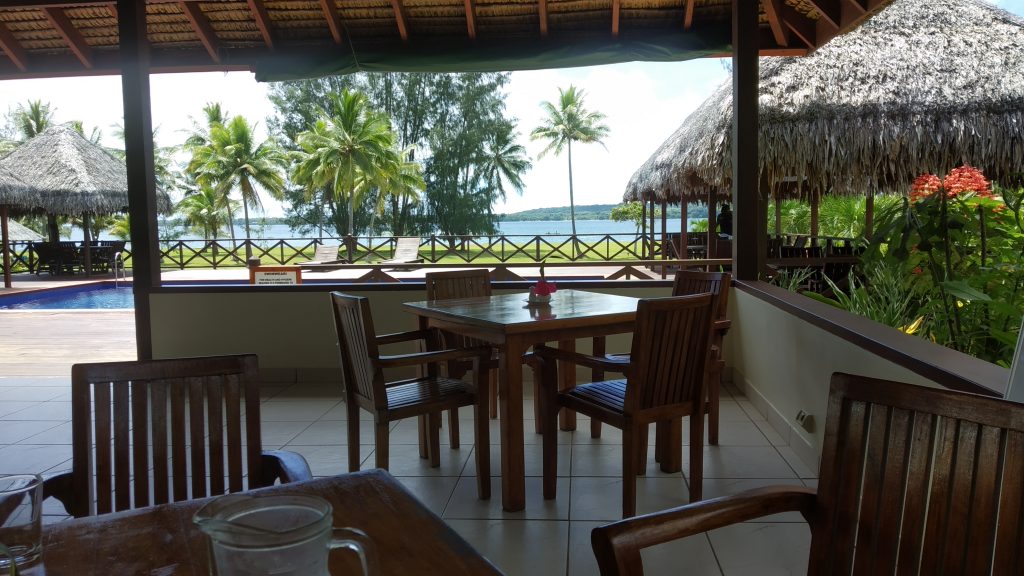
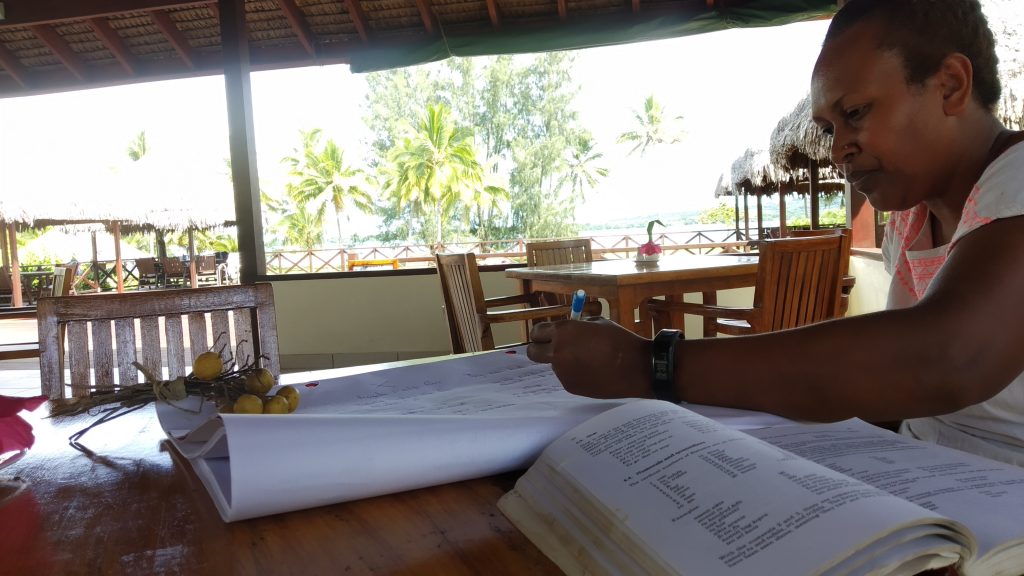
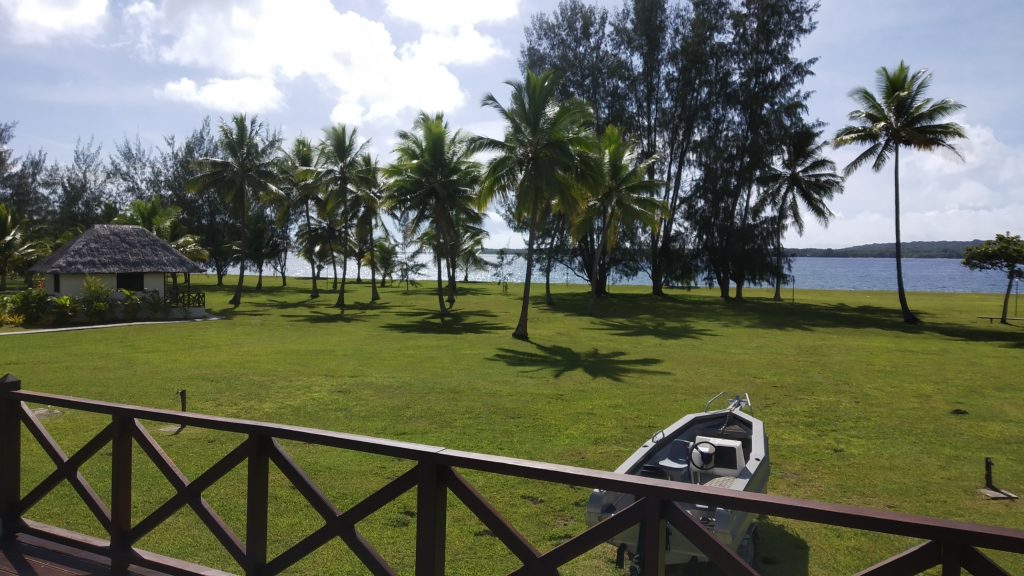
The only shame is it was brutally hot today. Temperatures were I think up to about 33 degrees, but with the humidity the apparent temperature was 41 degrees or so. Even our beachfront classroom with its sea breeze felt too hot to think straight.
As to the Bislama language, it must be one of the easiest languages to learn. The vocab is pretty much just English, but spelled as if you were phonetically trying to write with a Jamaican accent (go figure – maybe it’s just the island way). E.g. flower = flaoa, culture = kalja, coconut = kokonat, butter = bata, man = fala. They do away with any of the silent letters in English, and any consonant pairs (th, ch, sh) are simplified to a single letter. Then verb conjugation is mostly contextual, so doesn’t really change from the infinitive (mi go, yu go, hem go), and there are no verb tenses with future being indicated with “Bae” (from the English “by and by”) at the start of the sentence and “Bifo” for the past. Possession is indicated by the seemingly interchangeable words “blong/long/blo/lo”, which is also pretty much the universal preposition replacing “from” and “to”. All this simplification does seem to mean that things can get pretty vague, though, with a lot being left to context rather than precise details. This sort of fits in with the Ni-Vanuatu way of life, where precise details don’t really matter. All in all, by the end of my first day, I was speaking some slow and basic conversational Bislama, albeit with plenty of errors. Compared to when I learnt French and it took me about six months full immersion to get to the same point, it feels like an absolute win.
After my lessons, I caught the bus into town to buy a snorkel (Bislama: “windpaep”) and mask (“diving glas”) and a blender (“blenda”), as I want to make smoothies from the delicious market fruit when I get to Malekula.
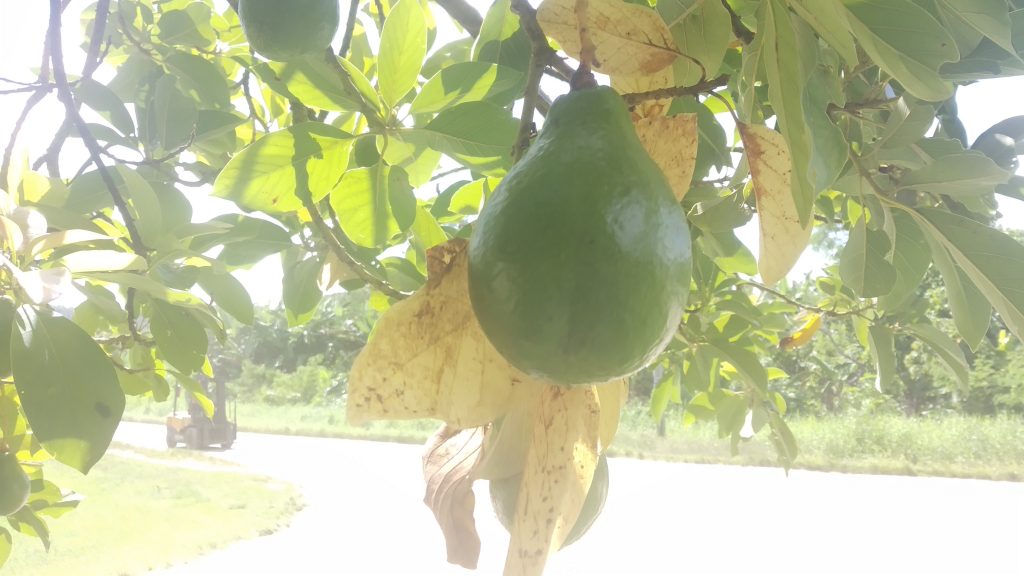
Found a cheap Chinese mask and snorkel, and a cheap Chinese blender in town. Figured I should go all in at this point, so went to a Chinese restaurant for supper, but not before getting a good picture of the sunset from the small park in the centre of Luganville:
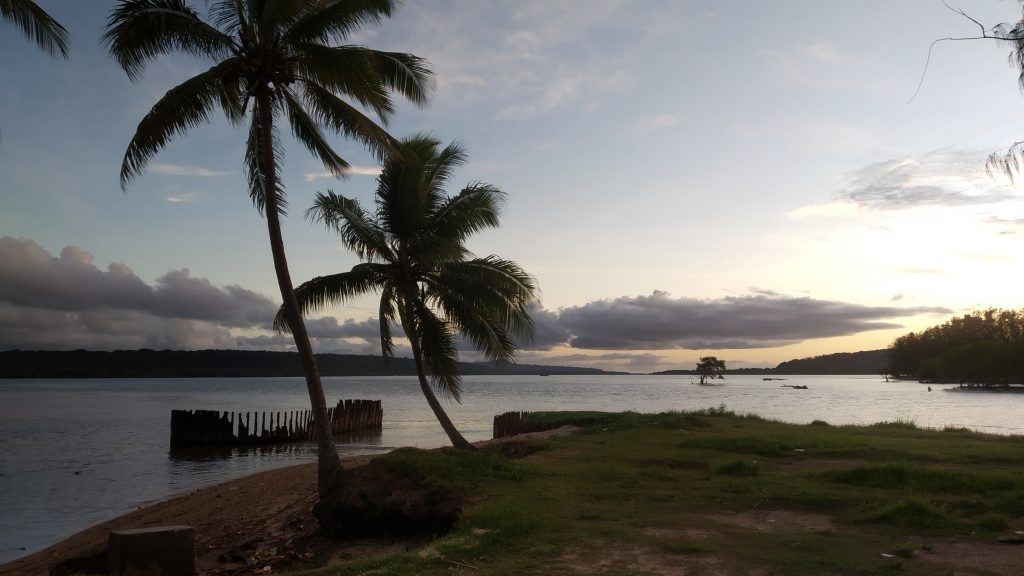
More Bislama lessons scheduled for the rest of the week, but I’ll spare you the details unless something particularly amusing crops up. Which reminds me, to finish on a good bit of trivia, the word “Bislama” comes from the French “bêche-de-mer”, meaning “sea-cucumber”. Love it.
4 thoughts on “Bae mi lernem Bislama*”
Bislama nambawan! Esperanto rabis! Sapos mekem evriwan lernem tok Bislama. Mekem pis long evri ples!
Wanem yu toktok Bislama gud tumas? Yu lernem long Vanuatu o wetem internet?
Bifo blong Santo mi lernem toktok smol Bislama. Nao mi raetem mobeta yusum internet. Yu tumas laki lernem lo tija blong Ni-Vanuatu. Bae yu lernem toktok tumas kwik. Brata, yu makem Pa bigwan praod.
Enjoying your blogs, Poggle!
Love from S&T